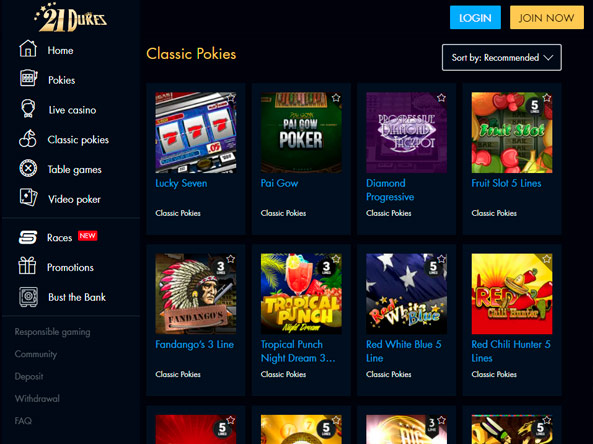- Feathered Fortune: Master the Risk & Reward in the chicken road game review – Learn When to Cash Out for Maximum Wins!
- Understanding the Core Gameplay Loop
- The Psychology of Risk Taking
- Strategies for Maximizing Your Winnings
- The Importance of Discipline
- The Role of Chance and Randomness
- Analyzing the Game’s Addictive Qualities
- Final Thoughts
. . .
Feathered Fortune: Master the Risk & Reward in the chicken road game review – Learn When to Cash Out for Maximum Wins!
The allure of simple yet gripping mobile games continues to grow, and the chicken road game review reveals a fascinating example of this phenomenon. This game, appealing to a broad audience, presents a captivating cycle of risk and reward. Players guide a chicken across a potentially treacherous road, earning incremental rewards with each successful step. However, the core mechanic revolves around knowing when to stop, as continuing too long can lead to a swift and frustrating end. It’s a game built on tension, anticipation, and a surprisingly compelling gameplay loop. This review will delve into the nuances of the game, exploring its mechanics, replayability and the psychology of the “cash out” moment.
At its heart, the game is a masterclass in behavioral psychology. The increasing multiplier with each step creates an irresistible pull, tempting players to push their luck further and further. This mechanism taps into the thrill of potential gain, and the fear of losing accumulated winnings. The game excels at creating this delicate balance, making the decision to cash out a consistently stressful, yet incredibly satisfying one. This isn’t simply entertainment; it’s an engaging exploration of risk assessment and self-control.
Understanding the Core Gameplay Loop
The fundamental premise of the game is delightfully straightforward. Players control a chicken attempting to cross a busy road filled with obstacles. Each successful step increases a multiplier, boosting potential winnings. However, each step also carries the risk of being hit by oncoming traffic, resulting in the loss of all accumulated earnings. This simple setup forms the foundation of a surprisingly addictive and engaging gameplay cycle. It is the tension between risk and reward, shadowed by the fear of sudden loss, that keeps players coming back for more.
The visual aesthetic is deliberately minimalistic, focusing on clarity and readability. Obstacles are easily identifiable, and the increasing multiplier is prominently displayed. This design choice eliminates potential distractions, keeping players fully focused on the core mechanic of crossing the road and maximizing their earnings. The lack of excessive visual clutter aids in quick reflexes and strategic decision-making – crucial elements to success.
| 1 | 1x | $0.10 | Low |
| 5 | 5x | $0.50 | Moderate |
| 10 | 10x | $1.00 | High |
| 15 | 15x | $1.50 | Very High |
The Psychology of Risk Taking
The game taps into a powerful psychological phenomenon: loss aversion. People generally feel the pain of a loss more strongly than the pleasure of an equivalent gain. This means that players are more motivated to avoid losing their winnings than they are to pursue even greater earnings. The chicken road game plays on this instinct, forcing players to constantly evaluate their risk tolerance and make split-second decisions. The rising multiplier is tempting, but the potential for loss can induce considerable anxiety.
Furthermore, the intermittent reinforcement schedule employed by the game (rewards are not guaranteed on every step) contributes to its addictive nature. This schedule is known to be highly effective in creating compulsive behaviors. The near-misses – close calls that don’t result in a loss – further reinforce the desire to continue playing, fueling the illusion of control and increasing the belief that the next step will be the winning step. The game understands how to stoke the fire of ambition within its players.
The intermittent nature of the game’s reward system is one of the core reasons it’s so appealing. It’s not a straightforward accumulation of wealth; it’s a dance between fortune and misfortune, one that many find surprisingly captivating. Each play presents a new opportunity, a fresh start, and the tantalizing prospect of hitting a high multiplier. This inherent variability compels players to keep trying, hoping to overcome the odds.
Strategies for Maximizing Your Winnings
While luck plays a significant role, certain strategies can increase your chances of walking away with a substantial payout. One approach is to establish a predetermined cash-out point before starting. This helps to remove emotional decision-making from the equation and minimizes the risk of succumbing to the temptation of pushing for a higher multiplier. A disciplined approach is key to long-term success in this game.
Another effective tactic is to observe the traffic patterns. Although the game is ostensibly random, subtle patterns can sometimes emerge, allowing players to anticipate potential hazards. This requires keen observation and a willingness to adjust your strategy based on the observed trends. A careful eye can be the difference between a modest reward and significant payout.
- Start Small: Begin with low multipliers to gain a feel for the timing and traffic patterns.
- Set a Limit: Determine a multiplier target before you start and stick to it.
- Observe Patterns: Pay attention to the flow of traffic; slight patterns can provide clues.
- Know When to Walk: Don’t be afraid to cash out; a smaller win is better than none.
The Importance of Discipline
Perhaps the most crucial aspect of playing the game successfully is maintaining discipline. The temptation to chase higher multipliers is strong, but it often leads to disastrous results. Resisting this urge requires a cool head and a clear understanding of the risks involved. It’s easy to get caught up in the moment and forget your initial strategy, but doing so greatly increases the likelihood of losing everything. A commitment to your established limits is paramount.
Consider the sunk cost fallacy – the tendency to continue investing in a losing endeavor simply because you’ve already invested significant resources. In this game, this translates to pressing on despite increasing risk, hoping to recoup previous losses. Recognizing this cognitive bias and resisting its influence are essential for making rational decisions. Remember, a win isn’t guaranteed, therefore prudent play is paramount.
The Role of Chance and Randomness
Despite any strategies or observations, the chicken road game ultimately relies heavily on chance. The timing of the oncoming vehicles is inherently random, making it impossible to predict with certainty when disaster will strike. This element of unpredictability is a key part of what makes the game so engaging, but it also means that luck plays a crucial role in determining the outcome. Accepting this randomness is fundamental to enjoying the experience without becoming overly frustrated.
Understanding the probabilistic nature of the game can help manage expectations. While a carefully considered approach can improve your odds, there’s always the potential for an unexpected loss. It’s important to view the game as entertainment, and to avoid investing more money or time than you’re willing to lose. The enjoyment comes from the thrill of the game, not the guarantee of a payout.
| 1x – 5x | High (80-90%) | Low |
| 6x – 10x | Moderate (50-70%) | Moderate |
| 11x+ | Low (20-40%) | High |
Analyzing the Game’s Addictive Qualities
The chicken road game taps into several factors that contribute to addictive behavior. The combination of intermittent reinforcement, loss aversion, and the thrill of risk taking creates a powerful psychological pull. The game’s simplicity and accessibility further enhance its addictive potential. It’s easy to pick up and play, and it doesn’t require a significant time commitment, making it perfect for casual gamers. This accessibility invites people to play repeatedly and indulge in the gratification of reaching a milestone.
The game also provides a sense of control, even though the outcome is ultimately determined by chance. Players feel that their timing and decision-making skills can influence their odds of success. This illusion of control is a powerful motivator, encouraging them to keep playing and attempting to master the game. This feeling reinforces the psychological reward of playing the game and increases the likelihood of continued engagement.
It’s also important to recognise the visual and audio cues that add to the game’s appeal. The clean graphics and satisfying sound effects provide a positive and engaging experience, making the game inherently enjoyable to play. This positive reinforcement loops with the reward potential to offer a constantly enticing game.
Final Thoughts
The chicken road game review demonstrates a surprisingly complex and compelling mobile experience. While seemingly simple on the surface, it skillfully leverages psychological principles to create an addictive and engaging gameplay loop. The constant tension between risk and reward, coupled with the thrill of potential gains, makes for a delightfully challenging and inescapably entertaining game. Knowing when to quit is the biggest challenge, but also the key to long-term enjoyment.
Understanding the core mechanics, employing strategic decision-making, and maintaining discipline are all crucial for maximizing your winnings. However, at its heart, this game is a testament to the power of chance and the enduring appeal of simple, well-executed gameplay. It’s a fun, engaging experience that offers a unique perspective on the psychology of risk taking.
- Identify a suitable cash-out point prior to commencing play.
- Utilise observational prowess to note prevailing traffic patterns.
- Accept the inevitability of the game’s inherent randomness.
- Avoid succumbing to the sunk cost fallacy and maintain emotional detachment.
- View the game solely as entertainment, not a source of revenue.
- Understand the controls and practice to refine timing.
- Be mindful of the addictive potential and play responsibly.
- Enjoy the rollercoaster of risk and reward, and remember to have fun!








